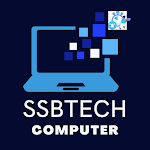W W W . S S B T E C H C O M P U T E R . B L O G S P O T . C O M
Internet
The internet is a wide network that connects computers, pcs,
smartphones to each other. It uses the TCP/IP to link devices worldwide. It is
a network of networks that consists of Private, Public, Academic, Business
& Government networks of local to the global scope. The Internet carries a vast
range of information resources & services, such as the inter-linked
hypertext documents & application of the World Wide Web, Emails, Telephony
& file sharing.
Intranet--
An intranet is a private network contained within an
enterprise that is used to securely share company information and computing
resources among employees. An intranet can also be used to facilitate working
in groups and teleconferences. It is a computer network for sharing
information, collaboration tools, operational systems, and other computing
services within an organization, usually to the exclusion of access by
outsiders.
WWW--
WWW stands for World Wide Web. That was discovered by Tim Berners
Lee on January 1, 1983. The www is a wide collection of internet websites that
can be used by the Hypertext interface.
Web Address( URL)--
A website is a collection of web pages and related content
that is identified by a common domain name and published on at least one web
server. Notable examples are wikipedia.org, google.com, and amazon.com. All
publicly accessible websites collectively constitute the World Wide Web.
According to data
saving the websites are mainly two types…….
- Static Website
- Dynamic Website
IP Address--
An Internet Protocol address is a numerical label assigned to
each device connected to a computer network that uses the Internet Protocol for
communication. An IP address serves two main functions: host or network
interface identification and location addressing. There are two versions of IP
in use today, IPv4 and IPv6. The original IPv4 protocol is still used today on
both the internet, and many corporate networks. Ex.. 506.457.14.512
TCP Address--
TCP (Transmission Control Protocol) is a standard that
defines how to establish and maintain a network conversation through which
application programs can exchange data. TCP works with the Internet Protocol
(IP), which defines how computers send packets of data to each other.
Search Engine--
A search engine is an information retrieval system designed
to help find information stored on a computer system. The search results are
usually presented in a list and are commonly called hits. Eg--Google, Bing,
Yahoo etc.
Web Browser--
A web browser is a software application for accessing
information on the World Wide Web. When a user requests a web page from a
particular website, the web browser retrieves the necessary content from a web
server and then displays the page on the user's device. Eg--Chrome, Firefox,
Opera etc.
Server &
Client--
Every computer over internet is either Server or Clint. If
network is providing service than it is Server But if it is using that service
than it is Client.
LAN—
LAN stands for Local Area Network. It is a computer network
that interconnects computer within a limited area such as a residence, school,
labs or office building.
WAN—
WAN stands for Wide Area Network. It connects the network over
a long-range. It can be connected by this method--
- Wireless Network
- Public Network
- Private Network
MAN--
A Metropolitan area the network is a computer network that interconnects users with computer resources
in a geographic region of the size of a metropolitan area.
WIFI--
Wi-Fi stands for
Wireless Fidelity It is a wireless networking technology that allows devices
such as computers (laptops and desktops), mobile devices (smartphones and
tablets), and other equipment (printers and video cameras) to interface with
the Internet. ... Internet connectivity occurs through a wireless router.
Hotspot--
A hotspot is a physical location where people can access the
Internet, typically using Wi-Fi, via a wireless local area network (WLAN) with
a router connected to an Internet service provider. ... While many public
hotspots offer free wireless access on an open network, others require payment
QR(Quick Response)
Code--
A QR code is a type of matrix barcode first designed in 1994
for the automotive industry in Japan. A barcode is a machine-readable optical
label that contains information about the item to which it is attached.
Although there is a minimum size QR Code of 2 x 2 cm(0.8 x
0.8 in), QR Codes be made as large as you need as long as you use high-quality
images so that the pixels don't become too blurred.
OTP(One Time
Password)
A one-time password, also known as a one-time PIN or dynamic
password. It is a password that is valid for only one login session or
transaction, on a computer system or other digital device.
Advantage of OTP--
OTP security helps to prevent access breaches, even if an attacker has obtained a valid set of login credentials. Easy adoption: One-time passcodes are also easy for organizations to integrate into their authentication strategies.

